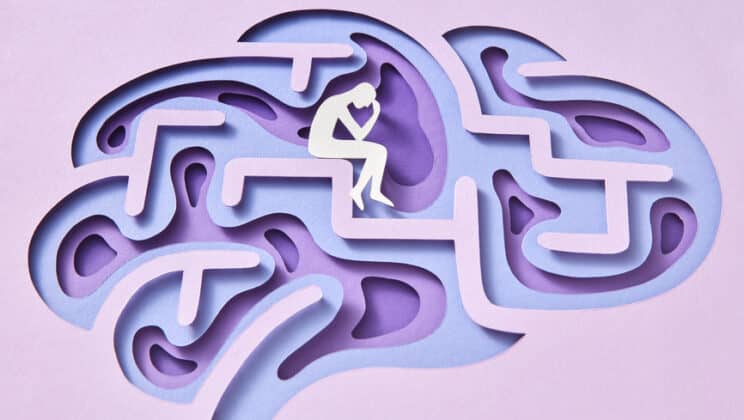Alcohol Use Disorder and Compassionate Care for Black Clients
May 12, 2022
A pandemic-related rise in alcohol use and other addictions has brought a new wave of clients to counselors who treat alcohol use disorder (AUD). Now more than ever, addiction therapists need top-notch tools and multicultural competency to address this crisis in mental health.
As a therapist with a background in addiction treatment and a focus on Black mental health, I’ve seen how culturally competent therapy can particularly influence outcomes for Black clients who struggle with alcohol dependency. These clients are influenced by a unique set of factors; their alcohol use may present differently than clients from other racial backgrounds, and they may react differently to traditional treatment approaches. These differences are sometimes overlooked by therapists who haven’t researched Black mental health.
While Alcohol Use Disorder (AUD) Awareness Month was back in April, Substance Use Disorder (SUD) and AUD are important to discuss year-round. I’m sharing my knowledge, based on experience and research, about treating Black clients for AUD and supporting their mental health journey. While the points outlined will not apply to every person who identifies as Black, they may help many clinicians approach their experiences with Black clients in a more culturally responsive and attuned way.
Beginning Alcohol Use Treatment with a Black Client
Initiating treatment, forging the therapeutic alliance, and conducting an initial assessment may look different with your Black clients than with clients of other racial backgrounds.
AUD treatment typically begins with a standard set of assessment questions followed by motivational interviewing. Therapists may need to adjust that process to make it more beneficial to Black clients.
Motivational Interviewing May Be Unnecessary
Motivational interviewing is meant to help clients recognize the consequences of alcoholism and develop the motivation to change. Black clients, however, are more likely than others to already grasp the consequences of their alcoholism. They may therefore interpret motivational interviewing as condescending, which will start the therapeutic relationship off on the wrong foot.
A few things contribute to this heightened awareness of consequences. First, the Black community tends to value the old adage of “holding your liquor,” and being unable to hold your liquor is cause for correction. If someone loses control while drinking, family and friends will probably talk to them about it. This helps them see the impact of their drinking in real time. On top of that, Black individuals face higher scrutiny from law enforcement and are more likely to be hyper-aware of the legal consequences of drinking—getting a DUI, being arrested for disorderly conduct, etc. This makes it harder to deny the seriousness of substance abuse.
AUD therapists and counselors should be aware that motivational interviewing may be unnecessary with Black clients, and could in fact be harmful to the therapeutic alliance between client and provider.
Assessing Black Clients’ Alcohol Use
Therapists may need to adjust their assessment questions and the measures that they use to gauge addiction severity when working with Black clients. Keep the following in mind:
- Ask whether the client drinks to manage emotions. Drinking to manage or mask emotions is a very common reason for alcohol use in the Black community. Therapists should screen for that early in the treatment process.
- DUIs are an unreliable indicator of addiction severity. The presence of a DUI on a driving record is commonly marked as a red flag in addiction counseling, indicating a likelihood of problematic alcohol use. However, because Black individuals are pulled over more often by police, they may be more likely than their white peers to get DUIs in the first place. This makes DUIs less helpful as an assessment tool.
- Black clients may underestimate the amount of alcohol they consume. This can skew the overall picture of their consumption.
- Racial discrimination may play a role in alcoholism. Experiences with racism, discrimination, and microaggression can drive many of the upsetting emotions that cause Black clients to cope with alcohol use. Internalized racism can exacerbate this mental and emotional distress. Mental health providers should be knowledgeable about these topics.
Building Rapport
Traditionally, providers use the intake session to ask questions and gather facts about the client’s alcohol use. However, this approach can be off-putting to Black clients, many of whom already struggle with cultural mistrust of mental health treatment. A barrage of clinical questions can intimidate these clients and paint clinicians as an “authority figure” rather than an ally in the counseling process.
At intake appointments for new Black clients, try not to solely rely on standard checklists and questionnaires. Instead, create a humanizing and organic experience for the client. For example, invite the client to talk about why they’re here, and practice active listening when they answer. Use affirming language like "I hear you” and “I see you” and “Your feelings are valid.” Use collaborative language that positions therapist and client as a team, not as authority figure and student. For example: "Together, you and I will complete an assessment to learn more about your situation. After that, we will decide how to begin your therapy journey."
It's important to be authentic with your clients, even while maintaining professional boundaries. One of the things I love about working at Lyra Health is that Lyra empowers therapists to show up as our authentic selves. I've never felt the need to tone down my identity as a Black woman, and that level of authenticity helps when providing care to my Black clients. It would be difficult for them to open up if they saw that I was not displaying cultural authenticity myself. Censoring my identity would send the message that therapy isn’t a place to bring real life to the table.
Attitudes Toward Alcohol Use and Treatment in the Black Community
Most of the Black clients I've treated for AUD came to me because they were mandated by a court–it’s not something they sought out on their own, which means that there may be a process to establish buy-in and internal commitment to their care.
Cultural differences and systemic racism both influence this reticence toward treatment for alcohol use, and it’s critical for providers to empathize with Black clients’ motivations and anxieties.
Mental Health Stigma
A person from any background might feel anxious or ambivalent about treatment for substance use disorder, but stigma within the Black community makes it especially hard for Black clients to seek help. The Black community tends to think about “addiction” and how it occurs mainly in extreme forms and stereotypes, such as a homeless drug addict, when in fact it is a disease that afflicts people who seem otherwise “put-together”. Black clients may resist seeing their alcohol use as “bad enough” to be considered addiction, and acknowledging addiction can fill them with shame. Social consequences from friends and family are powerful deterrents to seeking help.
Compared to the white population, the Black community is more hesitant about mental health treatment in general. These attitudes are gradually changing, but many still believe that mental health problems aren’t serious, don’t require outside help, or should be addressed with religious beliefs rather than therapy.
Masculine Stereotypes Discourage Treatment
Black men may be particularly reluctant to admit needing help for alcohol addiction. Cultural messaging related to men and masculinity within the Black community can send the message that a man should be able to handle problems on his own. He should never be weak, but always in control.
This type of hypermasculinity can lead to shame and discouragement if a man admits to seeking treatment. Some friends or family members may chide him for needing help from a therapist when he should just “man up” about his emotions or “pray it away” according to his religious beliefs (studies have found that Black men are particularly concerned about stigma).
Black College Students May Fear Consequences of Treatment
For some Black students, college intensifies the pressures to use alcohol. Racially-fueled conflict on campus, microaggressions, and the pressure to succeed can make Black students vulnerable to the allure of numbing out through substance use and abuse.
At the same time, seeking help through school counselors can feel risky. Black students may worry that reports of substance use will go on their record with the school or impact how administrators perceive them. Particularly for students who already feel discriminated against, the thought of asking the institution for help with alcohol use can feel unsafe. College counselors should be prepared to discuss these concerns with Black students and thoroughly review limits to confidentiality in a way that increases trust and safety.
Diversity Awareness for Effective Treatment
Cultural competence is critical for any provider who treats clients from various backgrounds and ethnicities, and this is especially true of those who treat Black clients for alcohol use. Be sensitive to their experiences, the messages they’ve received from friends and family, and the role that racism plays in their behavior, particularly issues around substance use and chemical dependency.
If necessary, attend training on this topic. Many employers, like Lyra, offer training on cultural competency to employees. It is important that efforts at diversity education are not performative; Black mental health is worth caring about and Lyra’s providers are willing to make changes to best serve a diverse population.
It’s worth reiterating that Black clients who are hesitant about treatment need to feel like the provider is their partner on a mental health journey. Listen closely to your clients and express your desire to find solutions to their problems together.
As providers become more aware of diversity and its influence on mental health, we improve the patient experience for everyone and put mental wellness within reach for more people.
Visit our Providers page to learn more about Lyra’s methodology, impact, and current opportunities.
CONTACT US
If you want help connecting with a coach or therapist, Lyra can assist you. You can get started today if Lyra is offered by your employer. Sign up now.
For employers who want to learn more about the value and impact of a mental health benefit, download our white paper or get in touch.
And check in frequently here or follow us on Facebook, LinkedIn, and Twitter for more insights into supporting employees’ mental health.
ABOUT THE AUTHOR:
Diamond M. Thaxton, LMHC is a licensed therapist and a certified substance abuse counselor living in New York. Diamond is currently finishing her doctorate in Public Administration at Valdosta State University, along with her PsyD, specializing in Industrial/Organizational Psychology. Diamond is a full-time Lyra Care Therapist and is dedicated to the mental wellness and empowerment of Black Men.
Explore additional blogs

Mental health treatment
Therapist POV: Lyra’s Alcohol and Substance Use Care Innovations

Mental health conditions
Debunking Common Myths About Mental Health

BIPOC